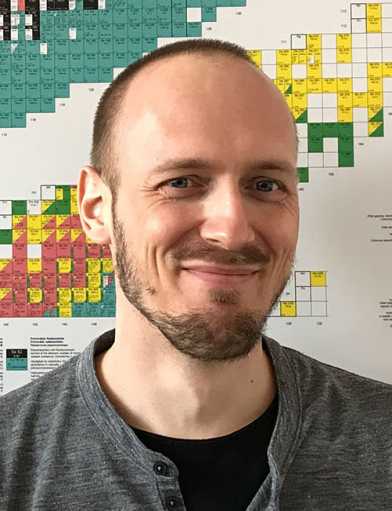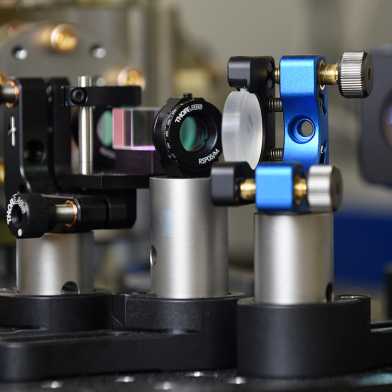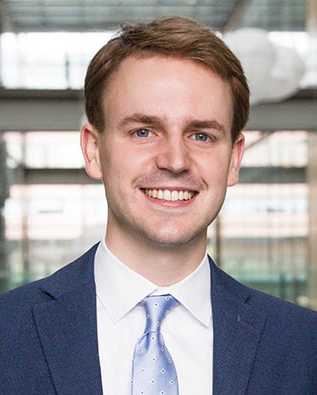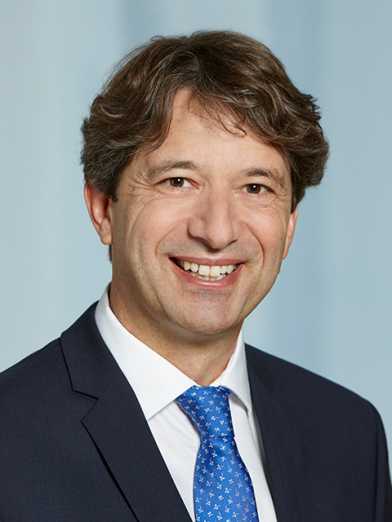07
Speed dating with radioactive heavyweights

They have bizarre names, are heavyweights on the molecular scales, are radioactive and artificial: superheavy elements or transactinoids are the exotics of the periodic table and Patrick Steinegger's only passion. At PSI and partner institutes, the radiochemist uses particle accelerators, plutonium targets and gold (among others) to track down and characterize these oddities. As an assistant professor at the LAC, he now aims to introduce the field to students at ETH Zurich.
High-precision frequency measurement

Many scientific experiments require highly precise time measurements with the help of a clearly defined frequency. Now, researchers at ETH Zurich, the University of Basel, the Swiss Federal Institute of Metrology (METAS) and the SWITCH Foundation have demonstrated a new approach, that allows the direct comparison of frequency measurements in the lab with the atomic clock in Bern, Switzerland. Frédéric Merkt (LPC) and his group are also involved in this project.
New at the LAC: Professor Máté József Bezdek

Dr Máté József Bezdek (*1991), currently Postdoctoral Researcher at Massachusetts Institute of Technology (MIT), USA, was recently appointed as Tenure Track Assistant Professor of Functional Coordination Chemistry at the Laboratory of Inorganic Chemistry, D-CHAB. Máté József Bezdek’s research covers function-oriented design and the synthesis of coordination compounds with unusual electronic, magnetic and thermochemical properties.
Harnessing AI to discover new drugs inspired by nature

Artificial intelligence (AI) is able to recognise the biological activity of natural products in a targeted manner, as researchers at ETH Zurich around Prof. Gisbert Schneider (IPW) have demonstrated. Moreover, AI helps to find molecules that have the same effect as a natural substance but are easier to manufacture. This opens up huge possibilities for drug discovery, which also have potential to rewrite the rulebook for pharmaceutical research.
Membership of the Academia Europaea for Christophe Copéret

The Academia Europaea is the Pan-European Academy of Sciences Humanities and Letters. Its aim is the advancement and propagation of scientific excellence. Membership is by invitation. The members are scientists and scholars who aim to promote learning, education and research. Amongst them are 72 Nobel Laureates, several of whom were elected to the Academia before they received the prize. Now Christophe Copéret (LAC) has also become an ordinary member of the Academia Europaea.